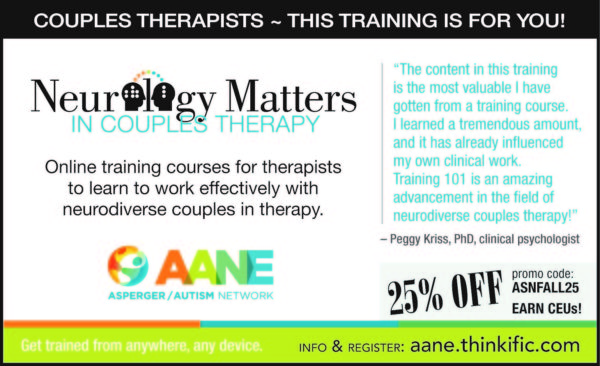It’s easy to say the wrong thing to someone, even when you have the best of intentions. Everyone has done it, and whether you realize it yourself or someone points it out to you, mistakes like these don’t feel good.
All of us learn social and communication skills from many sources, including parents, teachers, social situations, maybe even movies, TV, or videos. Over time, we often learn the “proper” thing to say even in difficult situations, such as funerals, or when someone is sick. To various extents, some of us are also able to use our intuition to figure out the complex subtleties of social communication.

Dania Jekel, Executive Director
Perhaps like you, over the years I have learned ways to enhance my communication with those on the autism spectrum: be concrete, don’t assume knowledge, use a soft voice, don’t use sarcasm or metaphors, be direct but non-judgmental. But there was a gap in my knowledge. I was never directly taught what not to say to someone on the spectrum.
At a recent meeting of an adult support group I facilitate, a conversation about language morphed into a discussion of phrases the group members had heard over and over throughout their lives. These comments had the effect of making them feel stupid, lazy, or incompetent. With their permission, I thought it would be helpful to share some of these phrases.
“You don’t look autistic.”
“Just calm down!”
“Can’t you try harder?”
“Just get organized.”
“Why don’t you manage your time better?”
“You did it yesterday; why can’t you do it today?”
“Can’t you act your age?”
At their core, all of these comments have the same problems: they portray a fundamental lack of understanding of the person’s neurological differences. They invalidate and dismiss the person’s often tremendous efforts, and they assume the issue could be solved easily by reprimanding the person. Moreover, these comments assume that what might be obvious, simple, or come naturally for one person will be the same for another.
Whether you are on the spectrum yourself or a neurotypical partner, parent, professional, friend, or sibling, here is a friendly suggestion: what you say to someone on the spectrum is important. Even if you have good intentions, if your comment is interpreted as hurtful or dismissive, it can be absorbed into the person’s self-esteem. Remember, people on the spectrum are probably perceiving and experiencing the world differently from most people around them and can be especially sensitive to language. Be patient, especially if you are feeling frustrated. Try to think and filter your words before you speak and imagine how you might feel if someone was making those comments to you. We can all help make the world a bit kinder for those on the autism spectrum.
This article is reprinted with permission. You may view the original article, published on February 7th, 2019, at www.aane.org/what-not-to-say.
For more information about The Autism/Asperger Network (AANE), please visit www.aane.org.




